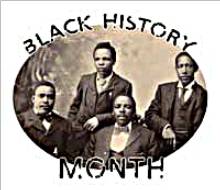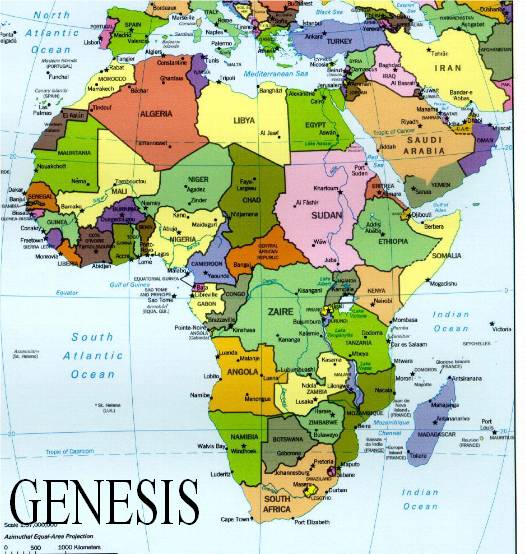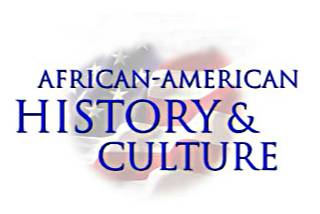| CROSS-GREEN-SMITH |
| Family Tree |
| Home | Family History | photos | Contact Family | News & Info | Administration | Help |
African American History Family reunions are a time, an event, when families can get together and enjoy outstanding fellowship, and food, with one another. This is also a time to celebrate and honor the memories of their family's ancestors. Some families also use their family reunion program as an opportunity to share and celebrate information about black history in general...the extended family. Family reunions are a time, an event, when families can get together and enjoy outstanding fellowship, and food, with one another. This is also a time to celebrate and honor the memories of their family's ancestors. Some families also use their family reunion program as an opportunity to share and celebrate information about black history in general...the extended family.Much of the information on this particular web page needs to be preserved and disseminated at times other than in the month of February. We hope and trust that you also share this viewpoint and enjoy the information presented here. We see our information as being "another voice" on this subject and not as the "last word" if someone is looking for that type of scholarly information. This web page will be updated on a timely schedule. So, let's begin. Dr. Carter G. Woodson Dr. Carter G. Woodson was the first African American to receive a PhD. from Harvard University. Dr. Woodson is widely known to many as the "father of Black history" in America because he wrote so many books on the subject...too many to list here. Here is a link to view his works. Dr. Woodson "Freedom's Shore...Tunis Campbell & the Georgia Freedmen" This is an outstanding book that chronicles the life of a Black man, Tunis Campbell, and segments of the Freedmen's Bureau. Mr. Campbell left the safety and comfort of New Jersey after the Civil War to come to Georgia to try and make a difference in the lives of the ex-slaves. This Book shows that Mr. Campbell's efforts in Georgia did make a big difference. The book is not available in bookstores and is only available through the University of Georgia Press in Athens, GA. "Remembering Slavery", a Smithsonian Project, the New Press,  This Book has a lot of facts and information about life as a slave in America as told by ex-slaves to reporters who were capturing this information for a federal government project during the time of President Franklin Delano Roosevelt's New Deal program. This Book has a lot of facts and information about life as a slave in America as told by ex-slaves to reporters who were capturing this information for a federal government project during the time of President Franklin Delano Roosevelt's New Deal program.Did you know that slave trading was officially abolished in the United states in 1808. However, slave traders continued long after that time. It is important to note that "slave trading" was abolished in 1808, however, the institution of slavery continued until 1865 after the Civil War. First African-American Parade in America The information for this subject was excerpted from the Pennsylvania Juneteenth Coalition's records. The first African-American parade was founded in Philadelphia. On June 26, 1863 Camp William Penn, was established to receive the African-American Troops. The first training regiment of African-Americans, in the Civil War, was called the United States Colored Troops (U.S.C.T.). On June 30, 1863, in Philadelphia PA, the first African-American Parade in America took place with several hundred African-American soldiers marched along 6th street to the corner of Chestnut street...site of the Old City Hall (1800-1874); site of the Liberty Bell; site of the first White House in the U.S.A. (1790-1800). Dr. John Hope Franklin A well-known classic, for many decades, was written by Dr. John Hope Franklin, "From Slavery to Freedom: A history of African Americans" Dr. Franklin's name has always been up there at or near the top of the list when it comes to authors who write on the life experiences of African Americans during different periods of time since unwillingly arriving from Africa. "Nature Knows No Color-Line, J.A. Rogers, This Book has a lot of facts gathered from research done in libraries around the world showing how Africans have been a part of aristocracy in many countries where one might not think that this was the case. Very involved, very detailed research with footnotes for practically all statements made. Donna Wyatt Howell Donna Wyatt Howell has written at least 24 short books based on the life experiences of slaves who had their interviews recorded by federal government workers. Her books cover a wide range of subjects that were relevant to how slaves lived on the plantations at that time. If one has a need or a desire to want to be able to feel how some of their ancestors were treated on a daily basis, these testimonies enable one to achieve that feeling. The text reads like portions of the TV documentary, "Roots", by Alex Haley. Very vivid. One can do a Google Search and find Ms. Howell in Washington, D.C. |
 |
| Home | Family History | photos | Contact Family | News & Info | Administration | Help |